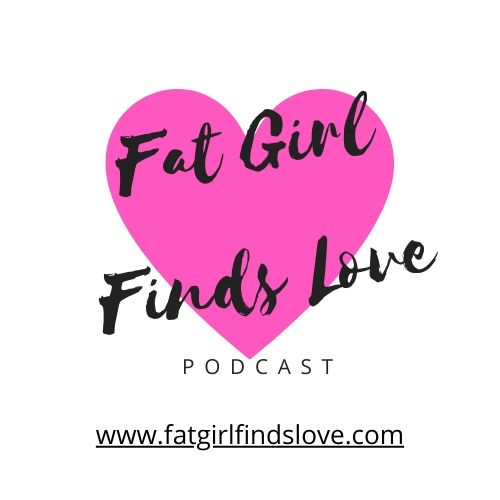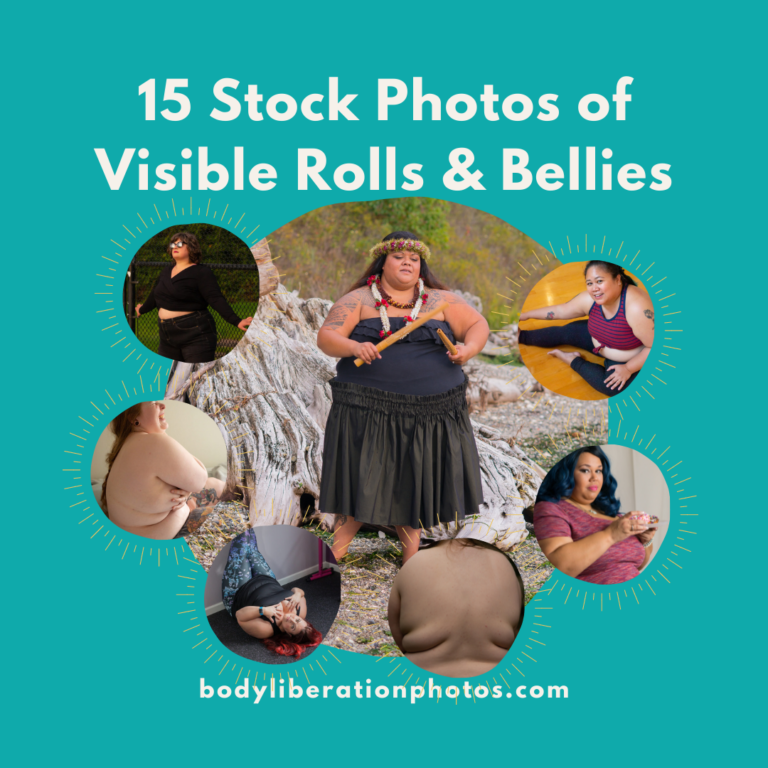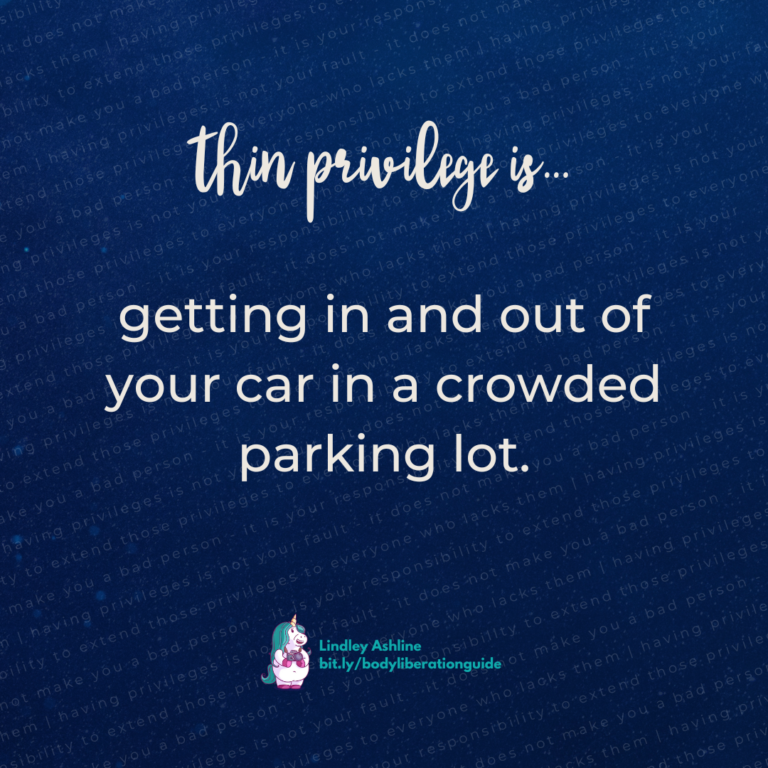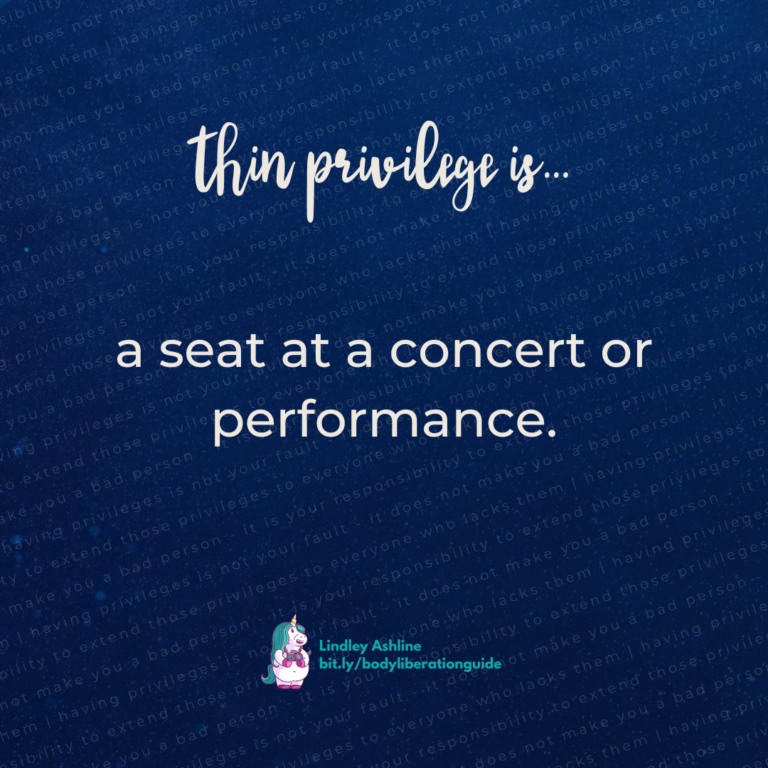A culture of compensation
I recently talked about how people who are privileged in a particular area often expect people who are marginalized in that area to educate them, give them ideas and even fix their organizations for free.
I’m also thinking about people like Ragen Chastain, who answer literally thousands of emails per month to provide free labor around fat oppression and weight stigma, and what it might look like if instead we had a culture in which it was just expected that requests for labor from marginalized people would be accompanied by payment — even just enough to buy a coffee would be a start.
I want us to build a world where it’s embarrassing, or even unacceptable, to ask marginalized people — especially strangers — to do stuff for free.
Someone’s going to come away from this saying, “Lindley says fat people should be paid for all their Instagram posts!” and I’d like for it to not be you, because that’s not what I mean at all.
When I put something out into the world I do it because I want to, because I have something to say, because I’m building my business, or any of the myriad other reasons people plonk things onto the internet. That’s my choice.
What I am saying is that I’d like to see a culture develop of giving value for value. Since the comments on this post by activist Nic McDermid are what helped crystallized this for me, I’m going to use Nic as my example here.
If you consistently find her posts valuable, subscribe to Nic’s Patreon.
If something Nic writes makes a difference in your professional work or business, or makes you better at what you do, send her some money.
If you ask Nic to give you resources or educate you, go ahead and arrange payment along with the request.
If you ask Nic to be involved in your cause/organization/nonprofit/etc., go ahead and ask for her consulting rates and pay her for her expertise.
If you don’t know how much to pay, assume that Nic’s time is at least as valuable as your own. If you think it might take Nic an hour of work to help you out, pay her at the same hourly rate you get paid.
And if that doesn’t seem reasonable to you, then don’t ask her to work for you for free. Google is always there for you instead.
Here’s an example:
A couple of years ago, I created a big resource guide to plus-size lingerie. I tried to make the language I used gender-inclusive, and I messed up.
When I started posting links to the piece on my social media, SJ Thompson generously gave me a few moments of their time and pointed out where I’d messed up. I took their recommendations, fixed the piece, thanked them…and then I paid them for their time.
Value for value.
Our pain ≠ your gain
This especially applies when you’re asking us for pieces of ourselves.
You’re preparing a presentation for your colleagues, or your class, or your professional society on healthcare, Health at Every Size, or weight stigma. You want to include some stories of the harassment, bias, discrimination and hatred fat people face every day, but since you live in a smaller body, you have no stories of your own.
So you ask for anecdotes from people with lived experience. It should be fine, right? After all, you want to make sure we’re heard, right?
Well, yes, and no. The thing is, explaining suffering over and over and over sucks. It’s hard, it hurts, and it heaps trauma upon trauma.
You can read more about how to ask us for our lived experiences ethically here.
Community care
Recently I gave a talk to a group of Health at Every Size® (HAES)-aligned eating disorder treatment providers on working with fat folks. Though I had an eating disorder (pica) as a child, I have not had an ED as an adult and have never been treated for one, so I was careful to explain to the practice that I would not be addressing ED-specific topics.
I know fat folks with EDs, though, so I asked on my personal Facebook whether anyone wanted to share one thing they’d like to tell ED treatment providers about working with fat folks.
Almost immediately, someone had a question for me. If I’m always talking about not asking marginalized people for free labor, how come I was doing exactly that?
It was an excellent question.
The difference is that this is my community. I don’t have an eating disorder, but I live in a body that is highly stigmatized and mistreated by healthcare providers. When I ask for a small amount of labor from my community — explicitly optional, with no pressure to contribute — the power dynamic is very different.
It’s also different because I have paid my damn dues. I’ve spent thousands of unpaid, occasionally-traumatic hours fighting for and with my community. It’s not unethical for me to ask for something small in return.
Value for value.
Image description: In this black and white photo, a fat white woman stands nude in front of a window high above a city and looks out, reflected in an oval mirror.
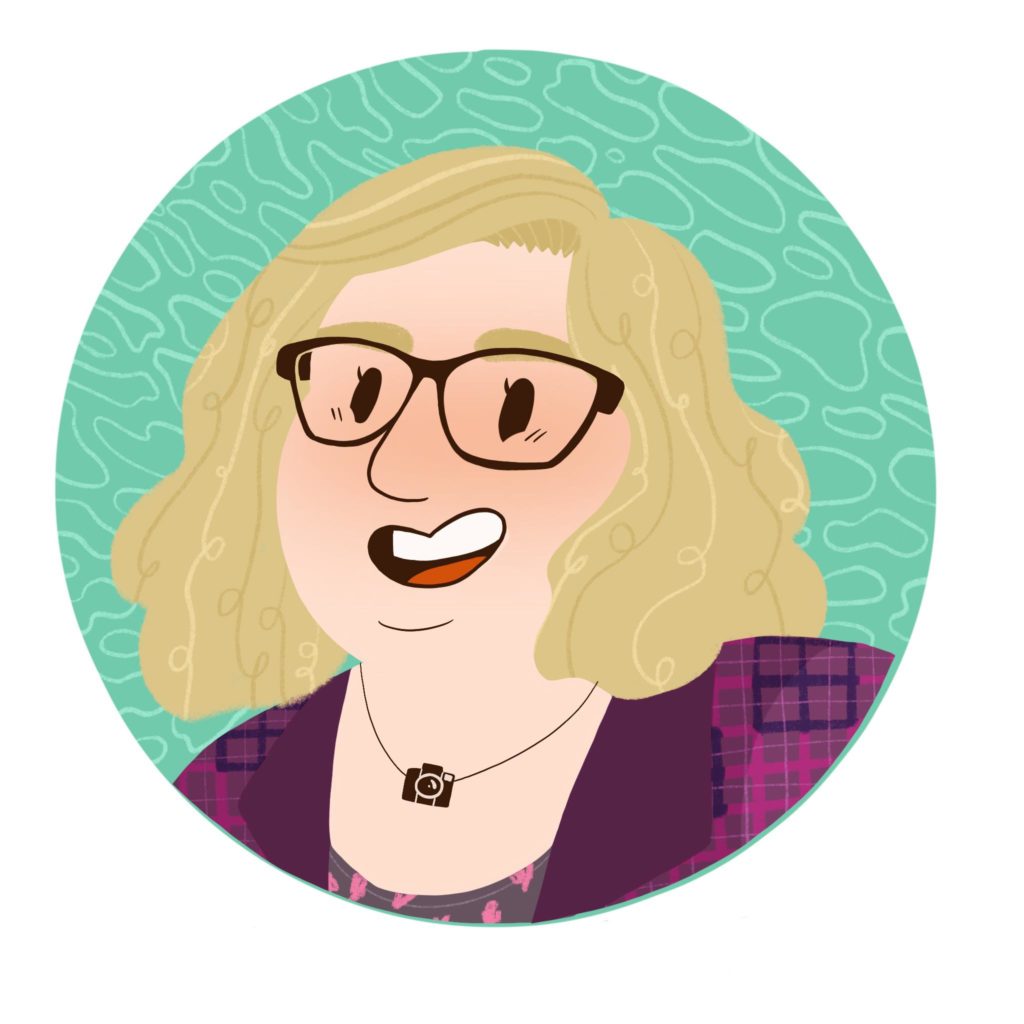
Every Monday, I send out my Body Liberation Guide, a thoughtful email jam-packed with resources on body liberation, weight stigma, body image and more. And it’s free. Let’s change the world together. Subscribe »
Hi there! I'm Lindley. I create artwork that celebrates the unique beauty of bodies that fall outside conventional "beauty" standards at Body Liberation Photography. I'm also the creator of Body Liberation Stock and the Body Love Shop, a curated central resource for body-friendly artwork and products. Find all my work here at bodyliberationphotos.com.
- Lindley Ashline
- Lindley Ashline
- Lindley Ashline
- Lindley Ashline
- Lindley Ashline
- Lindley Ashline
- Lindley Ashline
- Lindley Ashline
- Lindley Ashline
- Lindley Ashline
- Lindley Ashline
- Lindley Ashline
- Lindley Ashline
- Lindley Ashline
- Lindley Ashline
- Lindley Ashline
- Lindley Ashline
- Lindley Ashline
- Lindley Ashline
- Lindley Ashline
- Lindley Ashline
- Lindley Ashline
- Lindley Ashline
- Lindley Ashline
- Lindley Ashline
- Lindley Ashline
- Lindley Ashline
- Lindley Ashline
- Lindley Ashline
- Lindley Ashline
- Lindley Ashline
- Lindley Ashline
- Lindley Ashline
- Lindley Ashline
- Lindley Ashline
- Lindley Ashline
- Lindley Ashline
- Lindley Ashline
- Lindley Ashline
- Lindley Ashline
- Lindley Ashline
- Lindley Ashline
- Lindley Ashline
- Lindley Ashline
- Lindley Ashline
- Lindley Ashline
- Lindley Ashline
- Lindley Ashline
- Lindley Ashline
- Lindley Ashline
- Lindley Ashline
- Lindley Ashline
- Lindley Ashline
- Lindley Ashline
- Lindley Ashline
- Lindley Ashline
- Lindley Ashline
- Lindley Ashline
- Lindley Ashline
- Lindley Ashline
- Lindley Ashline
- Lindley Ashline
- Lindley Ashline
- Lindley Ashline
- Lindley Ashline
- Lindley Ashline
- Lindley Ashline
- Lindley Ashline
- Lindley Ashline
- Lindley Ashline
- Lindley Ashline
- Lindley Ashline
- Lindley Ashline
- Lindley Ashline
- Lindley Ashline
- Lindley Ashline
- Lindley Ashline
- Lindley Ashline
- Lindley Ashline
- Lindley Ashline
- Lindley Ashline
- Lindley Ashline
- Lindley Ashline
- Lindley Ashline
- Lindley Ashline
- Lindley Ashline
- Lindley Ashline
- Lindley Ashline
- Lindley Ashline
- Lindley Ashline
- Lindley Ashline
- Lindley Ashline
- Lindley Ashline
- Lindley Ashline
- Lindley Ashline
- Lindley Ashline
- Lindley Ashline
- Lindley Ashline
- Lindley Ashline
- Lindley Ashline
- Lindley Ashline
- Lindley Ashline
- Lindley Ashline
- Lindley Ashline
- Lindley Ashline
- Lindley Ashline
- Lindley Ashline
- Lindley Ashline
- Lindley Ashline
- Lindley Ashline
- Lindley Ashline
- Lindley Ashline
- Lindley Ashline
- Lindley Ashline
- Lindley Ashline
- Lindley Ashline
- Lindley Ashline
- Lindley Ashline
- Lindley Ashline
- Lindley Ashline
- Lindley Ashline
- Lindley Ashline
- Lindley Ashline
- Lindley Ashline
- Lindley Ashline
- Lindley Ashline
- Lindley Ashline
- Lindley Ashline
- Lindley Ashline
- Lindley Ashline
- Lindley Ashline
- Lindley Ashline
- Lindley Ashline
- Lindley Ashline
- Lindley Ashline
- Lindley Ashline
- Lindley Ashline
- Lindley Ashline
- Lindley Ashline
- Lindley Ashline
- Lindley Ashline
- Lindley Ashline
- Lindley Ashline
- Lindley Ashline
- Lindley Ashline
- Lindley Ashline
- Lindley Ashline
- Lindley Ashline
- Lindley Ashline
- Lindley Ashline
- Lindley Ashline
- Lindley Ashline
- Lindley Ashline
- Lindley Ashline
- Lindley Ashline
- Lindley Ashline
- Lindley Ashline
- Lindley Ashline
- Lindley Ashline
- Lindley Ashline
- Lindley Ashline
- Lindley Ashline
- Lindley Ashline
- Lindley Ashline
- Lindley Ashline
- Lindley Ashline
- Lindley Ashline
- Lindley Ashline
- Lindley Ashline
- Lindley Ashline
- Lindley Ashline
- Lindley Ashline
- Lindley Ashline
- Lindley Ashline
- Lindley Ashline
- Lindley Ashline
- Lindley Ashline
- Lindley Ashline
- Lindley Ashline
- Lindley Ashline
- Lindley Ashline
- Lindley Ashline
- Lindley Ashline
- Lindley Ashline
- Lindley Ashline
- Lindley Ashline
- Lindley Ashline
- Lindley Ashline
- Lindley Ashline
- Lindley Ashline
- Lindley Ashline
- Lindley Ashline
- Lindley Ashline
- Lindley Ashline
- Lindley Ashline
- Lindley Ashline
- Lindley Ashline
- Lindley Ashline
- Lindley Ashline
- Lindley Ashline
- Lindley Ashline
- Lindley Ashline
- Lindley Ashline
- Lindley Ashline
- Lindley Ashline
- Lindley Ashline
- Lindley Ashline
- Lindley Ashline
- Lindley Ashline
- Lindley Ashline
- Lindley Ashline
- Lindley Ashline
- Lindley Ashline
- Lindley Ashline
- Lindley Ashline
- Lindley Ashline
- Lindley Ashline
- Lindley Ashline
- Lindley Ashline
- Lindley Ashline
- Lindley Ashline
- Lindley Ashline
- Lindley Ashline
- Lindley Ashline
- Lindley Ashline
- Lindley Ashline
- Lindley Ashline
- Lindley Ashline
- Lindley Ashline
- Lindley Ashline
- Lindley Ashline
- Lindley Ashline
- Lindley Ashline
- Lindley Ashline
- Lindley Ashline
- Lindley Ashline
- Lindley Ashline
- Lindley Ashline
- Lindley Ashline
- Lindley Ashline
- Lindley Ashline
- Lindley Ashline
- Lindley Ashline
- Lindley Ashline
- Lindley Ashline
- Lindley Ashline
- Lindley Ashline
- Lindley Ashline
- Lindley Ashline
- Lindley Ashline
- Lindley Ashline
- Lindley Ashline
- Lindley Ashline
- Lindley Ashline
- Lindley Ashline
- Lindley Ashline
- Lindley Ashline
- Lindley Ashline
- Lindley Ashline
- Lindley Ashline
- Lindley Ashline
- Lindley Ashline
- Lindley Ashline
- Lindley Ashline
- Lindley Ashline
- Lindley Ashline
- Lindley Ashline
- Lindley Ashline
- Lindley Ashline
- Lindley Ashline
- Lindley Ashline
- Lindley Ashline
- Lindley Ashline
- Lindley Ashline
- Lindley Ashline
- Lindley Ashline
- Lindley Ashline
- Lindley Ashline
- Lindley Ashline
- Lindley Ashline
- Lindley Ashline
- Lindley Ashline
- Lindley Ashline
- Lindley Ashline
- Lindley Ashline
- Lindley Ashline
- Lindley Ashline
- Lindley Ashline
- Lindley Ashline
- Lindley Ashline
- Lindley Ashline
- Lindley Ashline
- Lindley Ashline
- Lindley Ashline
- Lindley Ashline
- Lindley Ashline
- Lindley Ashline
- Lindley Ashline
- Lindley Ashline
- Lindley Ashline
- Lindley Ashline
- Lindley Ashline
- Lindley Ashline
- Lindley Ashline
- Lindley Ashline
- Lindley Ashline
- Lindley Ashline
- Lindley Ashline
- Lindley Ashline
- Lindley Ashline
- Lindley Ashline
- Lindley Ashline
- Lindley Ashline
- Lindley Ashline
- Lindley Ashline
- Lindley Ashline
- Lindley Ashline
- Lindley Ashline
- Lindley Ashline
- Lindley Ashline
- Lindley Ashline
- Lindley Ashline
- Lindley Ashline
- Lindley Ashline
- Lindley Ashline
- Lindley Ashline
- Lindley Ashline
- Lindley Ashline
- Lindley Ashline
- Lindley Ashline
- Lindley Ashline
- Lindley Ashline
- Lindley Ashline
- Lindley Ashline
- Lindley Ashline
- Lindley Ashline
- Lindley Ashline
- Lindley Ashline
- Lindley Ashline
- Lindley Ashline
- Lindley Ashline
- Lindley Ashline
- Lindley Ashline
- Lindley Ashline
- Lindley Ashline
- Lindley Ashline
- Lindley Ashline
- Lindley Ashline
- Lindley Ashline
- Lindley Ashline
- Lindley Ashline
- Lindley Ashline
- Lindley Ashline
- Lindley Ashline
- Lindley Ashline
- Lindley Ashline
- Lindley Ashline
- Lindley Ashline
- Lindley Ashline
- Lindley Ashline
- Lindley Ashline
- Lindley Ashline
- Lindley Ashline
- Lindley Ashline
- Lindley Ashline
- Lindley Ashline
- Lindley Ashline
- Lindley Ashline
- Lindley Ashline
- Lindley Ashline
- Lindley Ashline
- Lindley Ashline
- Lindley Ashline
- Lindley Ashline
- Lindley Ashline
- Lindley Ashline
- Lindley Ashline
- Lindley Ashline
- Lindley Ashline
- Lindley Ashline
- Lindley Ashline
- Lindley Ashline
- Lindley Ashline
- Lindley Ashline
- Lindley Ashline
- Lindley Ashline
- Lindley Ashline
- Lindley Ashline
- Lindley Ashline
- Lindley Ashline
- Lindley Ashline
- Lindley Ashline
- Lindley Ashline
- Lindley Ashline
- Lindley Ashline
- Lindley Ashline
- Lindley Ashline
- Lindley Ashline
- Lindley Ashline
- Lindley Ashline
- Lindley Ashline
- Lindley Ashline
- Lindley Ashline
- Lindley Ashline
- Lindley Ashline
- Lindley Ashline
- Lindley Ashline
- Lindley Ashline
- Lindley Ashline
- Lindley Ashline
- Lindley Ashline
- Lindley Ashline
- Lindley Ashline
- Lindley Ashline
- Lindley Ashline
- Lindley Ashline
- Lindley Ashline
- Lindley Ashline
- Lindley Ashline
- Lindley Ashline
- Lindley Ashline
- Lindley Ashline
- Lindley Ashline
- Lindley Ashline
- Lindley Ashline
- Lindley Ashline
- Lindley Ashline
- Lindley Ashline
- Lindley Ashline
- Lindley Ashline
- Lindley Ashline
- Lindley Ashline
- Lindley Ashline
- Lindley Ashline
- Lindley Ashline
- Lindley Ashline
- Lindley Ashline
- Lindley Ashline
- Lindley Ashline
- Lindley Ashline
- Lindley Ashline
- Lindley Ashline
- Lindley Ashline
- Lindley Ashline
- Lindley Ashline
- Lindley Ashline
- Lindley Ashline
- Lindley Ashline
- Lindley Ashline
- Lindley Ashline
- Lindley Ashline
- Lindley Ashline
- Lindley Ashline
- Lindley Ashline
- Lindley Ashline
- Lindley Ashline
- Lindley Ashline
- Lindley Ashline
- Lindley Ashline
- Lindley Ashline
- Lindley Ashline
- Lindley Ashline
- Lindley Ashline
- Lindley Ashline
- Lindley Ashline
- Lindley Ashline
- Lindley Ashline
- Lindley Ashline
- Lindley Ashline
- Lindley Ashline
- Lindley Ashline
- Lindley Ashline
- Lindley Ashline
- Lindley Ashline
- Lindley Ashline
- Lindley Ashline
- Lindley Ashline
- Lindley Ashline
- Lindley Ashline
- Lindley Ashline
- Lindley Ashline
- Lindley Ashline
- Lindley Ashline
- Lindley Ashline
- Lindley Ashline
- Lindley Ashline
- Lindley Ashline
- Lindley Ashline
- Lindley Ashline
- Lindley Ashline
- Lindley Ashline
- Lindley Ashline
- Lindley Ashline
- Lindley Ashline
- Lindley Ashline
- Lindley Ashline
- Lindley Ashline
- Lindley Ashline
- Lindley Ashline
- Lindley Ashline
- Lindley Ashline
- Lindley Ashline
- Lindley Ashline
- Lindley Ashline
- Lindley Ashline
- Lindley Ashline
- Lindley Ashline
- Lindley Ashline
- Lindley Ashline
- Lindley Ashline
- Lindley Ashline
- Lindley Ashline
- Lindley Ashline
- Lindley Ashline
- Lindley Ashline
- Lindley Ashline
- Lindley Ashline
- Lindley Ashline
- Lindley Ashline
- Lindley Ashline
- Lindley Ashline
- Lindley Ashline
- Lindley Ashline
- Lindley Ashline
- Lindley Ashline
- Lindley Ashline
- Lindley Ashline
- Lindley Ashline
- Lindley Ashline
- Lindley Ashline
- Lindley Ashline
- Lindley Ashline
- Lindley Ashline
- Lindley Ashline
- Lindley Ashline
- Lindley Ashline
- Lindley Ashline
- Lindley Ashline
- Lindley Ashline
- Lindley Ashline
- Lindley Ashline
- Lindley Ashline
- Lindley Ashline
- Lindley Ashline
- Lindley Ashline
- Lindley Ashline
- Lindley Ashline
- Lindley Ashline
- Lindley Ashline
- Lindley Ashline
- Lindley Ashline
- Lindley Ashline
- Lindley Ashline
- Lindley Ashline
- Lindley Ashline
- Lindley Ashline
- Lindley Ashline
- Lindley Ashline
- Lindley Ashline
- Lindley Ashline
- Lindley Ashline
- Lindley Ashline
- Lindley Ashline
- Lindley Ashline
- Lindley Ashline
- Lindley Ashline
- Lindley Ashline
- Lindley Ashline
- Lindley Ashline
- Lindley Ashline
- Lindley Ashline
- Lindley Ashline
- Lindley Ashline
- Lindley Ashline
- Lindley Ashline
- Lindley Ashline
- Lindley Ashline
- Lindley Ashline
- Lindley Ashline
- Lindley Ashline
- Lindley Ashline
- Lindley Ashline
- Lindley Ashline
- Lindley Ashline
- Lindley Ashline
- Lindley Ashline
- Lindley Ashline
- Lindley Ashline
- Lindley Ashline
- Lindley Ashline
- Lindley Ashline
- Lindley Ashline
- Lindley Ashline
- Lindley Ashline



